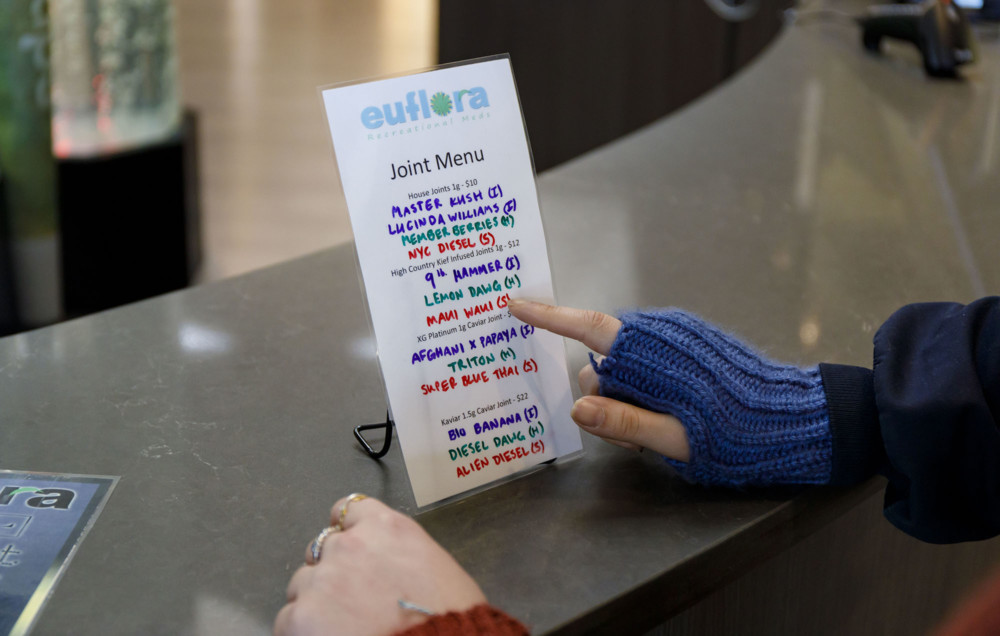By Ally Marotti
Chicago Tribune
WWR Article Summary (tl;dr) Marijuana companies are doing what they can to protect their growing national brands but it is difficult because the U.S. Patent and Trademark Office refuses registration when an application identifies goods that include marijuana.
CHICAGO
Illinois’ burgeoning marijuana industry has a trademark problem.
Since selling weed is still illegal on a national level, cannabis companies can get federal trademarks on some, but not all, parts of their business. They can’t trademark the marijuana itself, including the wacky and easy-to-remember names that companies have given to various strains, like Alien Bubba, Candyland and Granola Funk.
The predicament weed companies find themselves is akin to if Frito-Lay were able to trademark Cheetos but not the name of its Flamin’ Hot flavor.
But since nothing keeps knockoff products and customer confusion at bay like a federal trademark, companies are doing what they can to protect their growing national brands.
“We want to have the same protections for our brands as Advil, Snickers and Miller Lite do,” said Jason Erkes, spokesman for Cresco Labs, which sells its products in more than 600 dispensaries in seven states. “Being able to protect the brand you’re building equity in is one of your most important assets.”
Trademarks are requested through the U.S. Patent and Trademark Office, which refuses registration when an application identifies goods that include marijuana. It recently started granting trademarks for goods and services related to hemp-derived CBD, which was legalized nationwide late last year and does not get users high.
The agency is aware that marijuana companies have found legal workarounds to their trademark debacle. When it clarified its views on CBD earlier this year, it advised that “when applications recite services involving cannabis-related activities, they will be examined for compliance” with the law.
One tactic companies use as a get-around: Apply for a trademark for a line of products, but don’t mention those products include actual marijuana.
PharmaCann has a marijuana product line called Matter. But the Chicago-based company sought a trademark for the word “Matter” that covers ashtrays, cigarette cases and other smoking accessories, but not marijuana.
The inability to trademark marijuana itself means PharmaCann’s memorable name of SharksBreath for one of its strains sold at Illinois dispensaries isn’t protected, and another grower could slap the name on its own product.
The stakes are high for marijuana companies pouring millions of dollars into ensuring customers get the same experience with every weed-infused chocolate or gummy purchased, said Jeremy Unruh, director of public and regulatory affairs at PharmaCann.
“At the end of the day, we don’t want people going into a knockoff dispensary or buying a knockoff product thinking it’s our product,” he said. “Frankly, that could have dangerous consequences.”
Other Illinois marijuana companies also are edging as close as they can to trademarking their weed, without actually doing it.
Cresco’s trademark for its Mindy’s Edibles line includes a website with medical cannabis resources, but not the actual infused goodies. Grassroots Cannabis’ mark for “Grassroots” includes essential oils, chocolates and “herbs for smoking,” but does not identify that the herb is marijuana.
Illinois dispensaries sell marijuana strains with wacky monikers like Bio Jesus and Banana Split from Cresco, Birthday Cake and Mob Boss from Grassroots, Kiwi Skunk and Mojo from cannabis company Nature’s Grace and Wellness, none of which can be federally protected.
But showcasing a brand and filing for a trademark, even if the application is denied or the protection is partial, stakes a claim on a brand, said cannabis and global brand consultant Tim Tennant.
“It’s insurance for how the federal government is going to treat this in the future,” he said.
To cover more bases, weed companies also apply for state trademarks with the Illinois Secretary of State’s Office, said Bryna Dahlin, a partner at Benesch, Friedlander, Coplan & Aronoff who has worked with cannabis companies on trademark issues.
Those trademarks protect a brand only within a state.
That’s where customer confusion, often a major sticking point in trademark lawsuits, could come in, she said.
“There might be a famous strain in one state and then growers in another state will attempt to replicate it. It won’t be the same,” Dahlin said. “That’s exactly the kind of thing that in a more traditional business you’d be able to stop under federal trademark laws.”
Cannabis companies already have run into trademark infringement issues. And in at least one case, the legal battle came from a company outside the industry.
Two years ago, Ohio-based Gorilla Glue Co. reached a settlement over a lawsuit with Nevada-based GG Strains, which made several strains of marijuana that used the name Gorilla Glue. The adhesive company trademarked the term two decades ago, and the cannabis company agreed to change the names of its weed strains.
Now the strains that formerly used Gorilla Glue in their names are called Original Glue, New Glue and Sister Glue.
___
Distributed by Tribune Content Agency, LLC.














































































































































































































































































































































































